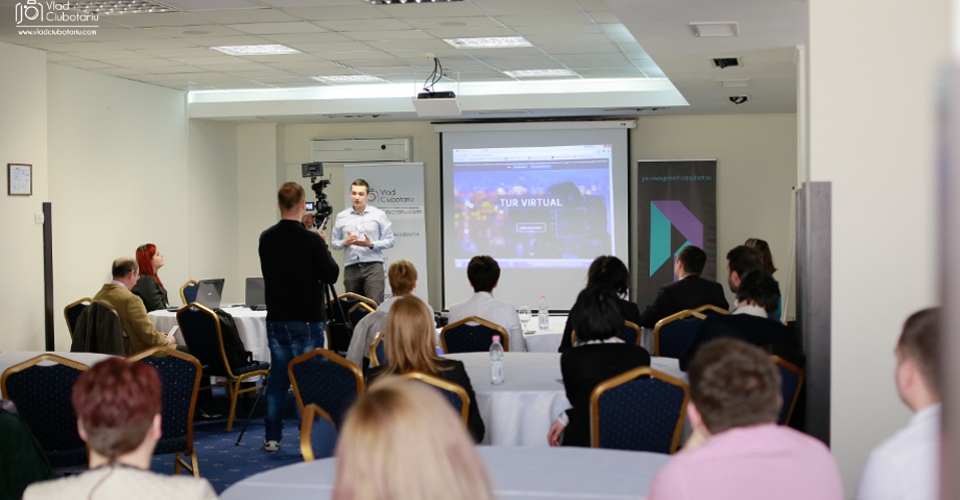by Raluca Filip
(2014 translation of 2005 article. Unfortunately,
nothing is changed on the subject, meanwhile)
As we all know, by the type of power descending (from Center to Territory), the States are:
I. Centralized State – the State is the only public law subject, the public interest is only one. The Centralized State can be of two kinds:
- Concentrated – purely theoretical model
- De-concentrated – representation of the State in the territory. There are entities – prolongations of the Center, which have hierarchical type of connections with the State
II. Decentralized State – there are the State and the Local Communities, therefore there are two types of public interest. The Public Administration is not unique anymore. (State Administration and Local Administration). There is local autonomy (decisional and financial), administrative trusteeship.
Power descending process from center to local communities is done on two levels. Decentralization and De-concentration coexist. To whom “the power is given”? To the State or to the Local Communities? If it is given to the State, where exactly? At the centre or in the territory?
Also, confusion can appear also when we talk about “delocalization” = the headquarters of some institutions are not in the capital of the respective country. The power (attributions) is the same only that geographically, the buildings are somewhere else.
III. Federal State where the first two types of State remain valid at the federate level (their own administrative model, there is no unique model – every component has another model)
IV. There is also a hybrid model between the decentralized and the federal models = politically regionalized State (Spain and Italy). Executive and legislative descends, judicial remains central. The State is tutelary to the region and that is all (not tutelary also to the lower communities). The region is tutelary to the rest of communities.
Romania is a decentralized State where the choice is not taken yet, for:
- Territorial De-concentration on VERTICAL line = de-concentration of power to Ministerial Administration’s de-concentrated public service OR
- Territorial De-concentration on HORIZONTAL line = greater power to the prefect than to the Ministerial Administration’s de-concentrated services’ chiefs.

Ministers are Government members; Chiefs of Ministry Agencies are NOT Government members but have the same attributions like ministers.
Autonomous Authorities are mentioned, partly, in The Constitution: Court of Accounts, Supreme Council of National Defense, Romanian Ombudsman, The Legislative Council, Radio and Television Public Service, National Audiovisual Council of Romania, Competition Council, National Bank of Romania, Superior Council of Magistracy.
Between Government and Autonomous Authorities there is NO subordination, NEITHER cooperation from equal positions.

Therefore, because between Government and Autonomous Authorities there is no subordination, neither cooperation from equal positions, nor the Prefect can lead the Autonomous Authorities representatives in the territory (Constitution, art 123, al.2).
At local level, the Prefect is DIRECTLY subordinated to the Government. He/She IS every single minister (only as public authority, not as political authority as well), on the subject of the respective area, in the TERRITORY. He/She cannot be representative of persons (Chiefs of Ministry Agencies, respectively).
There is nothing stipulated in the Constitution, nor in the ordinary laws or the special laws, of the choice for one system or another. In the present, the clear trend is of territorial de-concentration on HORIZONTAL line, but it’s not stipulated anywhere.
Where does it come from, this trend?
Art.3 from Prefect Law ( 340 / 12.07.2004 ): “The Prefect COMMANDS Ministerial Administration’s de-concentrated public services and public services of other central administration institutions from the territory”
Art. 35 al.1 from Prefect Law ( 340 / 12.07.2004 ): « Ministries and other central administration institutions communicate with priority to the prefects the legal nature documents and the prefects are obliged to transmit the documents to de-concentrated institutions »
For example, Ministry of Public Finance has to give a decision for the County Finance Offices from all over the country. The Ministry doesn’t send it directly to the 42 offices but to the 42 prefects. They will send to the County Finance Offices the respective decision.
Therefore, if from top to bottom these decisions pass through the Prefect first, it is logical to pass also through the Prefect the reverse flux, from bottom to top – but it is not happening so.
Another aspect is the PROPOSAL that the Prefect has to make for naming and releasing the chiefs of de-concentrated institutions (public servants who pass an EXAM). In the grammatical meaning of the word, a « proposal » is CONSULTATIVE. The minister appoints the chief of that institution. By the law, this fact urges to a territorial de-concentration on VERTICAL line vision.
Art. 25 from Prefect Law ( 340 / 12.07.2004 ): “Naming and releasing from the function of chiefs of de-concentrated institutions is done only by the proposal of the prefect, by the law.”
The Prefect could, however, forward some purely discretionary proposals for naming and releasing chiefs. That is why, this kind of proposal, as much consultative as it is, pushes the power towards the prefect (there are some other examples, not only this one) and towards the territorial De-concentration on HORIZONTAL line.
Also, the Law for regional development in Romania ( 315 / 28.06.2004 ), from the technical point of view, brings a novelty compared to the Constitution’s regulations, adding to the administrative-territorial entities sanctioned by it (villages, municipalities, counties) the one of the development region. This law stipulates the attributions of every structure implicated in functioning of development regions and the connections between them. The law mentions the basic objectives of regional development policy towards the elimination of regional disequilibrium and towards the stimulation of a balanced development of regions; correlation of governmental different domain policies to the regional level; stimulation of inter regional, internal, international, cross border cooperation.
However, we can observe that instead of creating an elastical judicial and administrative framework, which could allow an association of administrative-territorial units (counties) by the specificity of their local issues, the law imposes an administrative organization of 8 regions, constituted more by the territorial neighborhood and the free will of the legislative, establishing the make-up of every region. This fact gives a “forced” partnership note, contrary to the stated law principles.
Moreover, the law does not confer legal personality to the development regions nor to the deliberative regional institutions.
(fragment 2)









